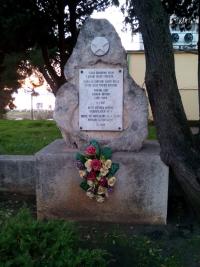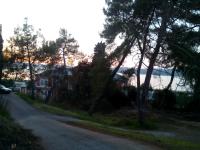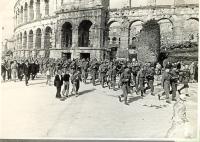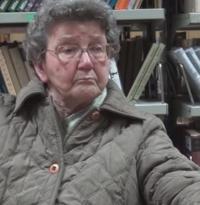Secretly sewing American flags

Download image
Nerina Rakić was born on April 16th 1928 in Valdebek (Pula). She completed 5 classes in italian primary school and 3 classes in Scuola di avviamento professionale. Her father was employed as a sewer in the army while her mother was a houswife. During Italian and German administration she never witnessed any significant unpleasantness. She pointed out that a mail for an Italian soldier came several times at her house address and after the war she sent a letter back to see if he survived the war. When she was 16 years old she was given a task to sew American flags, a task of which was forbidden to talk. She also pointed out that her parents strongly supported antifascism and her father enjoyed reading on Italian much more than on Croatian language even in the latter days. During Allied bombing of Pula she was in bombshelter several times. She remebers that Pula was demolished especially at old bus station which are today Radić and Kandler street. She added that more bombs were dropped on military objects and shipyard. Valdebek didn’t witness any heavy bombardments, only a single grenade was dropped and caused a big hole in the ground. She saw the end of the war near Arena expecting arrival of Yugoslav partisans. But while partisans were entering the city, on May 5th 1945, detonations and gunfire could still be heard because armistice still hasn’t been signed. She doesn’t remember if someone called them to go and wait for partisans to arrive nor does she remeber when the Yugoslav partisans left and the Americans arrived. During Allied administration she was often involved in demonstrations. Usually at demonstrations there were two groups: Italian and others. She remembers that a woman (Maria Pasquinelli) came from Italy and killed a British officer.



